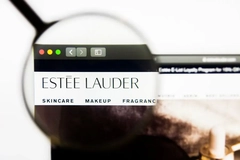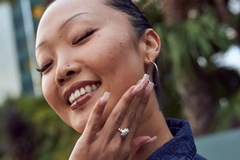Nivea unveils global campaign to tackle loneliness and break stigma

Beiersdorf’s Nivea has launched a global campaign to illuminate the “loneliness epidemic.” The skin care brand has released a short film and research to reduce the stigma around social isolation and promote human connection.
In 2023, the WHO declared loneliness a global public health concern. What is colloquially referred to as the “loneliness epidemic” has been largely attributed to the isolation felt during the COVID-19 pandemic and the fallout of increased seclusion afterward.
The global awareness campaign “We are not alone in feeling alone” emphasizes the importance of social connection in what Nivea calls an “increasingly fragmented world.”
The short film “We are not alone” depicts a series of common scenarios experienced by people of all ages worldwide.

To personify the experience of loneliness, a humanoid alien is placed in scenes from everyday school life to riding a public bus, demonstrating that loneliness can exist even in crowded and joyful environments. When a character reaches out to connect, the alien transforms into a human being, symbolizing the impact of empathy and human connection.
The Nivea Connect study on loneliness includes educational resources to help people identify triggers, understand the impact, and better connect with others. According to its results, 1 in 5 people often feel lonely, and over half report feeling isolated at some point.
In Thailand (69%), South Africa (65%), Nigeria (62%) and the US (61%), loneliness is significantly higher than the global average of 56% who feel lonely sometimes. On the other hand, Germany, China, and Japan (47% each) and Saudi Arabia (49%) report lower levels of loneliness.
 Nivea's campaign shines a light on the “loneliness epidemic,” promoting human connection worldwide. The research highlights the emotional and physical toll of loneliness and common barriers to seeking help, such as shame and fear of being a burden. The study was conducted in 13 countries and involved over 30,000 respondents.
Nivea's campaign shines a light on the “loneliness epidemic,” promoting human connection worldwide. The research highlights the emotional and physical toll of loneliness and common barriers to seeking help, such as shame and fear of being a burden. The study was conducted in 13 countries and involved over 30,000 respondents.
Personal Care Insights speaks to Grita Loebsack, president of Nivea, and a Beiersdorf spokesperson, about the importance of breaking down the stigma related to loneliness and the industry’s role in larger societal conversations.
What is the purpose of this campaign for Nivea, and how does it relate to its brand ethos?
Beiersdorf spokesperson: Nivea Connect is our global social mission launched in September 2024. Nivea is committed to fighting social isolation and loneliness and fostering meaningful connections. Social isolation and loneliness affect the health and well-being of people of all ages, socio-economic backgrounds, and cultures.
Nivea believes that by fostering genuine human connections, removing the stigma of loneliness, and closing the knowledge gap around this issue, we can help build a world where fewer people feel isolated or left out.
Loebsack: With Nivea Connect, we support people in strengthening their relationships. We want to create an environment where asking for help is encouraged rather than feared. Together, we can build a world where connection is a priority, awareness leads to action, and no one is left alone with a feeling of isolation.
How are you planning on continuing your spot in this conversation?
Beiersdorf spokesperson: It takes perseverance to fight stigmatization and create meaningful connections. That’s why Nivea Connect is not a short-term project, but a long-term global mission that we are tackling worldwide with a strategic framework in collaboration with our partners.
To achieve measurable success, we set the ambitious goal of setting up local Nivea Connect projects with partners in 40 countries by 2026. However, this does not mark the end of our mission, but rather signifies that we have reached one of hopefully many future milestones.
Should other beauty companies join this conversation? Is there a connection between the personal care industry and loneliness?
Beiersdorf spokesperson: At Beiersdorf, our care goes beyond skin. With care at the core of everything we do, we promote inclusion and social cohesion across our entire value chain and beyond. Our vision is a world where we all feel good in our skin, no matter who we are or where we come from. Grita Loebsack, president of Nivea.
Grita Loebsack, president of Nivea.
Each of us can contribute to achieving this vision. We truly believe that we all have the power to reach out and connect because even the smallest act of empathy can change a life.
What is the personal care industry’s role in these larger societal conversations?
Beiersdorf spokesperson: The personal care industry plays a crucial role in larger societal conversations. Nivea Connect’s mission aligns with Beiersdorf’s broader vision, “Care Beyond Skin,” reinforcing our commitment to a more inclusive society through the “Win with Care” strategy.
At Beiersdorf, we care for skin and beyond, touching millions of consumers’ lives daily with our products. This brings great responsibility and an even greater opportunity. We leverage our social commitment in two areas: corporate programs and volunteering, and brand social missions (Eucerin, Health Care, and Nivea). Our goal is to deliver measurable impact for a more inclusive society.
What drives what people are calling a “loneliness epidemic?”
Beiersdorf spokesperson: We are experiencing what people are calling a “loneliness epidemic” due to numerous causes. Our study, the Nivea Connect Compass, shows that a combination of psychological and external factors drives this phenomenon.
Significant psychological triggers include feeling misunderstood by others (40%), struggling with self-confidence (38%), and finding it difficult to approach people (35%). Financial struggles (38%) and a lack of contact with family and friends (29%) further contribute to the sense of loneliness.
 Young people aged 16 to 24 are more likely to feel isolated than any other age group.Despite its prevalence, loneliness remains deeply stigmatized, often accompanied by feelings of shame and reluctance to seek support. This stigma creates a self-perpetuating cycle of silence, making loneliness even harder to address. Unlike physical health challenges, which are openly discussed, loneliness is often hidden, with many suffering in isolation, believing they are alone in their struggles — when, in reality, they are far from it.
Young people aged 16 to 24 are more likely to feel isolated than any other age group.Despite its prevalence, loneliness remains deeply stigmatized, often accompanied by feelings of shame and reluctance to seek support. This stigma creates a self-perpetuating cycle of silence, making loneliness even harder to address. Unlike physical health challenges, which are openly discussed, loneliness is often hidden, with many suffering in isolation, believing they are alone in their struggles — when, in reality, they are far from it.
What are the most important findings from your global loneliness study?
Beiersdorf spokesperson: Our global Nivea Connect Compass reveals that loneliness remains a deeply stigmatized issue despite its prevalence.
More than half (56%) of people who feel lonely find it difficult to ask for help. One in four young people aged 16–24 are likelier to feel lonely than any other age group. Loneliness often peaks during the quiet moments of daily life, such as evenings (37%). Stigma keeps people ‘silent,’ with 56% of those feeling lonely finding it difficult to ask for support.
The antidote to loneliness is connection. The report shows that 63% of people who experience meaningful connections with others feel happier.













